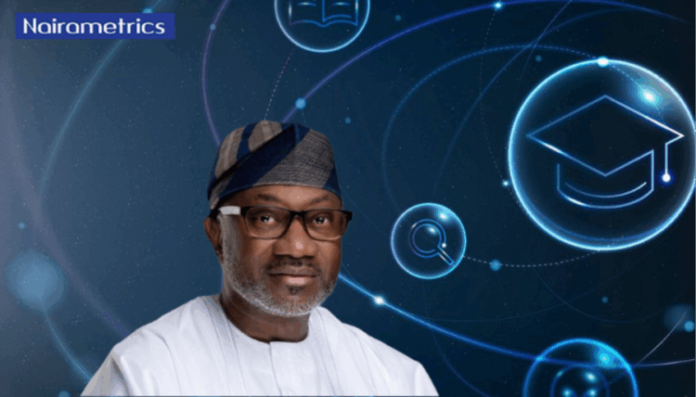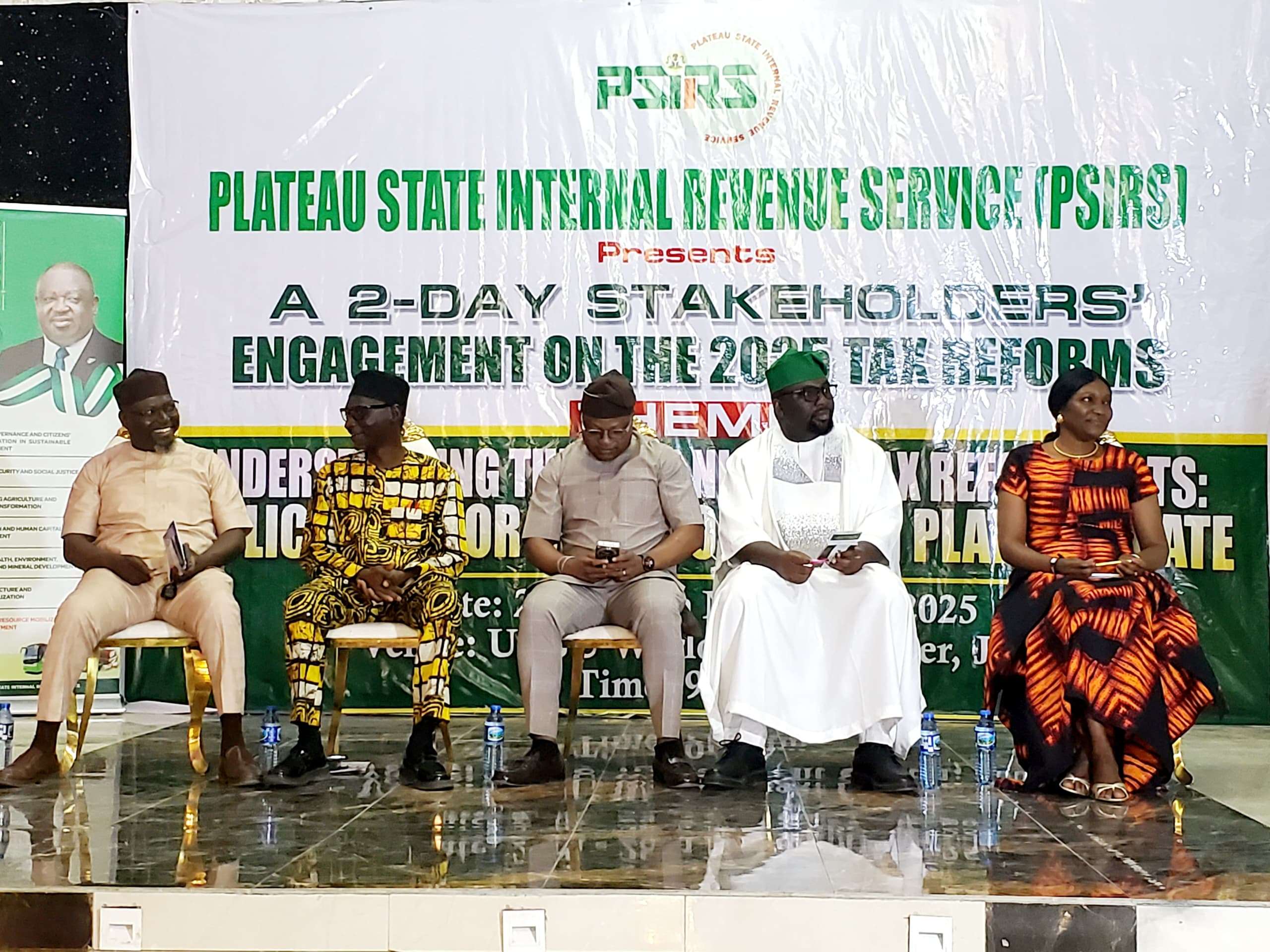Nigeria’s formal education system follows a 9-3-4 structure (Basic, Secondary, Tertiary), with primary education being mandatory and free with the public schools under the Universal Basic Education (UBE) program.
The government has adopted tertiary education as a mechanism for development and largely controls it.
Nigerians value education with a lot of premium placed on paper qualification. The relationship between formal education and becoming a successful businessman is quite complicated and interesting, with both educated and uneducated entrepreneurs achieving wealth and influence.
Some prominent Nigerian businessmen hold degrees, while others built their vast enterprises without formal tertiary education, demonstrating diverse paths to success in the Nigerian business landscape.
While academic credentials can provide valuable business skills and legitimacy, a significant number of Nigeria’s most successful entrepreneurs have achieved immense wealth through apprenticeship, resilience, and street-level business acumen
Many Nigerian families view tertiary education as a direct path to success, and educational degrees are highly valued. There are suggestions that successful businessmen who hold degrees demonstrate a refined approach to business, including effective packaging and management of their enterprises.
However, there are are numerous examples of wealthy Nigerian businessmen who have achieved great success without formal Western education or university degree, supervising employees with even Masters and PhD degrees in their establishments.
This article spotlights some popular Nigerian businessmen drawn from different parts of the country who grew and achieved high level of success in their entrepreneurship without a university degree.
11. Dr. Cletus Madubugwu Ibeto – Chairman & CEO, The Ibeto Group
Cletus Madubugwu Ibeto is the Chairman of Ibeto Group, one of Nigeria’s most diversified conglomerates.
He began his career as an apprentice in the motor parts trade and worked his way up to become a leading industrialist committed to excellence. He earned his B.Sc. (Honours) in Accountancy from the University of Nigeria, Nsukka where he was also later awarded an honorary Doctorate in Business Administration (DBA)
The Ibeto Group operates across multiple sectors: Ibeto Cement Company Ltd., Ibeto Industries, Ibeto Petrochemical Industries, Union Auto Parts Manufacturing, and others
His contributions to Nigeria’s socio-economic development earned him two of the country’s highest honors: Officer of the Order of the Niger (OON) in 2008 and Commander of the Order of the Niger (CON) in 2012
Beyond business, Dr. Ibeto serves as the Chairman of the Governing Council for Nwafor Orizu College of Education in Nsugbe, Anambra State.
10. Dr. Cosmas Maduka – Founder, President & CEO, Coscharis Group
Dr. Cosmas Maduka is the Founder and President of Coscharis Group, a Nigerian conglomerate with businesses spanning automobiles, ICT, agriculture, auto care, and petrochemicals.
He began his career with a small spare parts business in 1977, which he built into one of the country’s most recognizable brands. Today, Coscharis is the sole franchise owner for premium automobile brands such as BMW, Jaguar Land Rover, Rolls-Royce, and Ford in Nigeria.
Maduka studied at Harvard Business School’s Executive Education programme and holds an honorary doctorate from the University of Nigeria, Nsukka.
In 2012, he was awarded Commander of the Order of the Niger (CON). He also served as a director at Access Bank Plc for 12 years and was president of the Nigerian Table Tennis Federation.
Dr. Maduka’s leadership extends beyond commerce. He served as a Director at Access Bank Plc. for 12 years and led the Nigerian Table Tennis Federation for 16 years during which Nigeria dominated African competitions and competed in multiple Olympic Games
More recently, he was awarded Ernst & Young West Africa Entrepreneur of the Year in 2020 and became an honorary Fellow of the Chartered Institute of Directors in Nigeria in October 2024
9. Mohammed Indimi
Mohammed Indimi is the founder and chairman of Oriental Energy Resources, an oil exploration company that has become a significant player in Nigeria’s petroleum sector.
Indimi was born on August 12, 1947, in Maiduguri, Borno State. He grew up in a modest family and did not have the opportunity to pursue formal education. However, his early life working with his father in the trading of animal hides and skins gave him a foundation in entrepreneurship and resilience.
By the age of ten, he had already started to show an instinct for trade. Despite lacking formal schooling, Indimi taught himself how to read and write in English. His informal training came through practical business experiences, apprenticeships, and the discipline of self-learning.
Indimi’s career journey began with small-scale trading. He first borrowed £100 to start his own business, dealing in imported clothes, before expanding into other ventures. The turning point came in 1990 when he founded Oriental Energy Resources. The company grew into a respected indigenous oil firm, operating several offshore assets in Nigeria. Today, he serves as chairman, guiding the company with decades of experience.
Through Oriental Energy and personal initiatives, Indimi has influenced Nigeria’s oil sector by proving that indigenous firms can thrive in an industry historically dominated by foreign companies.
8. Vincent Obianodo
Vincent Amaechi Obianodo is a Nigerian businessman and transport mogul, He is the founder and chairman of Young Shall Grow Motors, one of the country’s leading luxury bus operators.
Obianodo was born on August 10, 1947, in Neni, Anambra State, into a modest family. His early life was shaped by the realities of survival and the determination to make something meaningful out of little.
Moving to Kano as a young man, he began working as a vulcanizer before taking up roles as a bus conductor and later a driver. These early experiences in Nigeria’s road transport sector exposed him to the opportunities and challenges of moving people across the country.
His formal education was limited, but his business acumen came from on-the-job learning and observing how transport services operated in different regions. Through perseverance and savings, he bought his first vehicle in 1972 to ply the Enugu–Onitsha route. By 1973, he had moved operations to Lagos, where the demand for intercity transport was growing.
In 1978 his fleet expanded to 40 buses, signaling the birth of what would eventually become Young Shall Grow Motors Limited. The company has grewn into a fleet of over 500 buses, serving not only Nigeria but also neighboring West African countries.
Through his business, Obianodo transformed long-distance travel in Nigeria, introducing more organized bus terminals, fleet tracking systems, and passenger-focused services.
7. Orji Uzor Kalu
Orji Uzor Kalu is a Nigerian businessman, politician, and philanthropist, known both as the founder of SLOK Holding and as a public servant who has played significant roles in the country’s political life.
He is currently a senator representing Abia North and has served as the Chief Whip of the Nigerian Senate.
Kalu was born on April 21, 1960, in Igbere, Abia State. Raised in southeastern Nigeria. At a young age, he engaged in trading palm oil, borrowing just $35 from his mother to start.
His enrolled at the University of Maiduguri, where he studied political science but was later suspended for his involvement in student activism and Ali must go riots.
While his fellow students later took the school authorities to court, Kalu left school to build his own business.
He eventually completed his studies at Abia State University, received executive education at Harvard Business School, and was later awarded honorary doctorates from universities in Nigeria and abroad in recognition of his leadership and achievements.
Kalu’s business career took off when, at only 19 years old, he founded SLOK Holding. What started small grew into a conglomerate with interests in furniture manufacturing, publishing, banking, shipping, aviation, and media. He also became publisher of influential newspapers such as The Daily Sun and The New Telegraph.
Beyond business, Kalu served as governor of Abia State from 1999 to 2007. He was a prominent voice in the National Assembly, as Senate Chief Whip of the 9th Senate of the Federal Republic of Nigeria, was a former presidential candidate in 2007, and governor of Abia State from 1999 to 2007.
6. Innocent Ifediaso Chukwuma
Innocent Ifediaso Chukwuma, was born on October 1, 1961, in Umudim, Nnewi, Anambra State. He is the youngest of six children in a family headed by Mr. Chukwuma Mojekwu, a government worker, and Mrs. Martina Chukwuma, a homemaker
Chukwuma began his journey without formal success in academics. After secondary school, he assisted his elder brother in a medicine store before apprenticing under a motorcycle spare parts dealer. That hands-on learning unlocked his entrepreneurial spirit and inspired his own venture into trade
What started as importing and assembling motorcycle parts evolved into creating one of Nigeria’s most dynamic indigenous industrial brands. In 2007, he founded Innoson Vehicle Manufacturing (IVM), Nigeria’s first local automobile manufacturer headquartered in Nnewi. The IVM produces a range of locally made cars, minibuses, and trucks—about 70% of whose parts are sourced from within Nigeria
Chukwuma’s influence goes beyond business. His innovations reduced vehicle importation and created lasting industrial capacity in the region. For his efforts, he earned national honours like the Officer of the Order of the Niger (OON) and was later awarded the Commander of the Order of the Niger (CON) in 2022. He was also named Most Innovative Entrepreneur in 2013 and made an honorary life vice president of NACCIMA.
5. Mrs. Folorunsho Alakija (Famfa Oil)
Chief Folorunsho Alakija is a Nigerian billionaire entrepreneur and philanthropist, born on July 15, 1951, in Ikorodu, Lagos State
She received early education at Muslim High School in Sagamu before pursuing secretarial studies at Pitman’s Central College in London and training in fashion design in London’s American College and Central School of Fashion.
Alakija, who is regarded as Nigeria’s wealthiest woman did not attend a university and is reported to have publicly stated that formal education is not necessary for success.
She once said, ‘’I became a billionaire even without a University degree’’
According to her, she was able to achieve greatness in life even without a university degree.
Alakija began her professional life in banking in 1974, serving at Sijuade Enterprises and later at the International Merchant Bank. But her creative spark led her into fashion: in 1980 she founded Supreme Stitches, which later became Rose of Sharon House of Fashion. She rose to become national president and lifelong trustee of the Fashion Designers Association of Nigeria
In 1991, Alakija moved into oil and gas by securing a license for OPL 216, which became the prolific Agbami oil field. Through Famfa Oil, she maintains a majority stake and partners with global majors like Chevron and Petrobras
She serves as Executive Vice Chair of Famfa Oil and Group Managing Director of Rose of Sharon Group, overseeing ventures in printing, fashion, real estate, including DaySpring Properties and Digital Reality Prints
Alakija has earned international recognition, appearing multiple times on Forbes’ lists of most powerful women and being named the richest woman of African descent
In 2016 she became the first female chancellor of Osun State University and has served on several advisory boards, including the National Heritage Council and Commonwealth Business Forum.
4. Ladi Delano
Ladi Delano is a British Nigerian tech entrepreneur and co-founder and co-CEO of Moove Africa, a pioneering mobility-fintech platform that offers revenue-based vehicle financing to gig workers across Africa and beyond.
Born in 1983 and raised in the UK, Delano grew up supported by parents whose sacrifices and guidance he often credits for his entrepreneurial drive.
Ladi Delano suffered from mild dyslexia and deafness in one ear. This made education challenging for him and in the process, hampered his progress in college, where he had to drop out because of the learning difficulties posed by these disabilities.
Despite these challenges, Ladi Delano rose above his disabilities to start a liquor business in China called Solidarnosc Asia, a Chinese alcoholic beverage company that made Solid XS, a premium brand of vodka brand which he later sold to a rival liquor business for over $15 million by the ag
According to reports, he later earned a Master’s in Public Administration from the London School of Economics and a Master’s in Major Programme Management, along with a Postgraduate Diploma in Global Business, from Oxford University.
Delano’s early entrepreneurial journey took root in 2004 when, at around age 24, he founded Solidarnosc Asia in China a beverage company that launched the vodka brand Solid XS. The brand captured significant market share, generating around $20 million annually, and eventually sold for over $15 million.
He then pivoted to real estate investments in mainland China, eventually forming Bakrie Delano Africa (BDA) a $1-billion joint venture with Indonesia’s Bakrie Group focused on mining, agriculture, oil and gas, and infrastructure in Nigeria.
In 2020, Delano co-founded Moove with Jide Odunsi. The company has rapidly scaled across nine markets in Sub-Saharan Africa and India, forging a landmark partnership with Uber as the exclusive vehicle financing and supply partner in Africa.
3. Sir Tony Ezenna – Orange Drugs
The Orange Drugs story began in 1985, when Sir Tony Ezenna transformed his father’s small chemist shop into Orange Drugs Limited with just N15,000 in seed capital.
Subsequently, Orange Drugs Limited joined the beauty care industry through the importation of soaps, creams, and other beauty products. By 2006, the Company commenced the local production of different brands of soaps in Lagos and this was aimed at boosting the Nigerian manufacturing sector and also creating jobs for the populace. In order to meet up with the challenges in the global economy, Orange Drugs Limited later diversified its line of business by the establishment of Orange Kalbe Ltd and Orange West Africa Limited, leading to the formation of the Orange Group.
In the pharmaceutical space, Orange has forged enduring partnerships with some of Indonesia’s largest firms, including Kalbe Farma, Tempo Scan Pacific, Dexa Medica, and Mensa Group on products like Procold, Mixagrip, Sudrex, Boska, Delta Soap, Passion Energy Drink, and Extra Joss Energy Drink. They also offer products like Ginmil, Mintacid, and Tempovate Cream. Its relationship with Kalbe Farma dates back to the company’s founding in the 1980s, reflecting a decades-long commitment to international collaboration.
Recognition of Orange’s impact came early. In 1995, the company received the “Star Donor Award” from the Pharmaceutical Society of Nigeria for its contributions to healthcare.
2. Razaq Okoya – Eleganza Group
Razaq Akanni Okoya, who was born on January 12, 1940, is a billionaire industrialist and the Aare of Lagos. He is the owner and founder of Eleganza group of companies.
Okoya is a Yoruba man from the southwestern part of Nigeria. He was born into the family of Tiamiyu Ayinde Okoya in Lagos. He attended Ansar-Un-Deen primary school in Oke Popo, his only formal schooling. He worked in his father’s tailoring business, which also included the sale of tailoring accessories. The experience he got gave him the confidence to start tailoring activities on his own. He saved every penny he made until he had 20 pounds. His mother gave him the extra 50 pounds and with the blessing of his father, he started importing and trading goods from Japan.
The flagship, Eleganza Group, has been shaping consumer goods manufacturing for nearly five decades. With trading roots traced to the late 1960s, Eleganza formally began manufacturing in 1978, opening its first factory in Oregun, Ikeja.
His empire extends beyond manufacturing into real estate through RAO Property Investment Company. Today, Eleganza employs about 5,000 people nationwide, making it one of Nigeria’s largest private-sector employers.
From plastics and packaging to fans, chairs, diapers, and cosmetics, Eleganza products are fixtures in households across Nigeria and neighboring African countries.
1. Femi Otedola – Zenon Petroleum/Geregu Power Plc
Olufemi Peter Otedola CON, who was born on November 4, 1962, is a Nigerian businessman and philanthropist. He is the former Chairman of Forte Oil Plc and is the current Executive Chairman of Geregu Power Plc.
Otedola was born in Ibadan, the capital of Oyo State, Southwest Nigeria, into the family of the late Sir Michael Otedola, Governor of Lagos State from 1992 to 1993.
Otedola had in his new memoir, ‘Making it big’, revealed that he never obtained a university degree, despite long-held public belief and even past reports suggesting otherwise. He disclosed that his business journey, rather than formal academics, provided the education that shaped his rise to the top.
The Femi Otedola’s business journey is deeply tied to Zenon Petroleum and Gas Limited, established in 2003. Zenon disrupted Nigeria’s downstream oil sector by investing heavily in oil storage facilities and tank farms, alongside a fleet of over 1,000 trucks.
At its peak, the company controlled a significant share of the diesel market, supplying major manufacturing giants such as Dangote Group, Cadbury, Coca-Cola, and Nigerian Breweries. Zenon became synonymous with efficiency, large-scale distribution, and financial daring.
• Over time, Femi Otedola expanded beyond Zenon into strategic equity stakes in major institutions like Forte Oil Plc, which he eventually sold to new investors, led by Abdulwasiu Sowami through Ignite Investments.
• The company was renamed Ardova Plc.
• The name change was approved by shareholders in December 2019 and formally registered in February 2020, marking the return of the historic “AP” name. He further ventured into power generation, aligning with the government’s push for electricity sector reforms, before divesting in 2019 to focus on Geregu Power Plc.
Geregu has since become a publicly listed company on the Nigerian Exchange, with ambitious plans to shape Nigeria’s energy future. He also bought shares in Dangote Cement, according to a report by Nairametrics.
Otedola’s business vision has always reflected a mix of calculated risk, diversification, and legacy-building.









